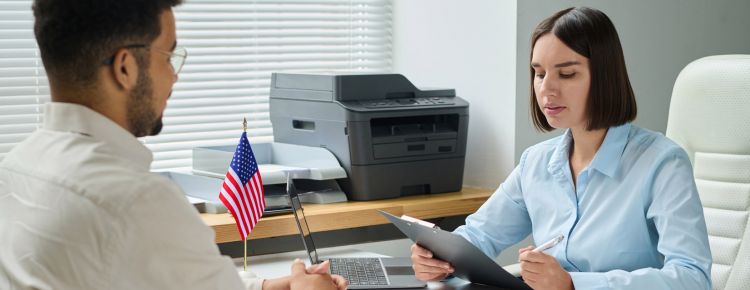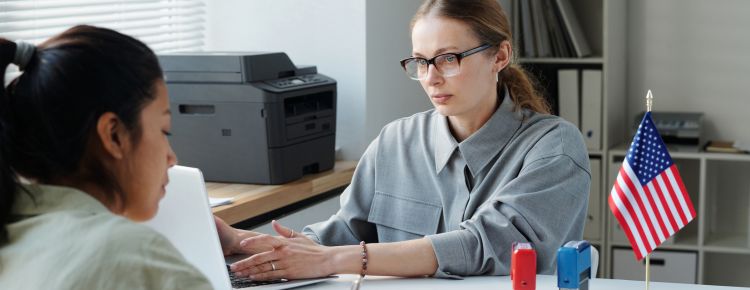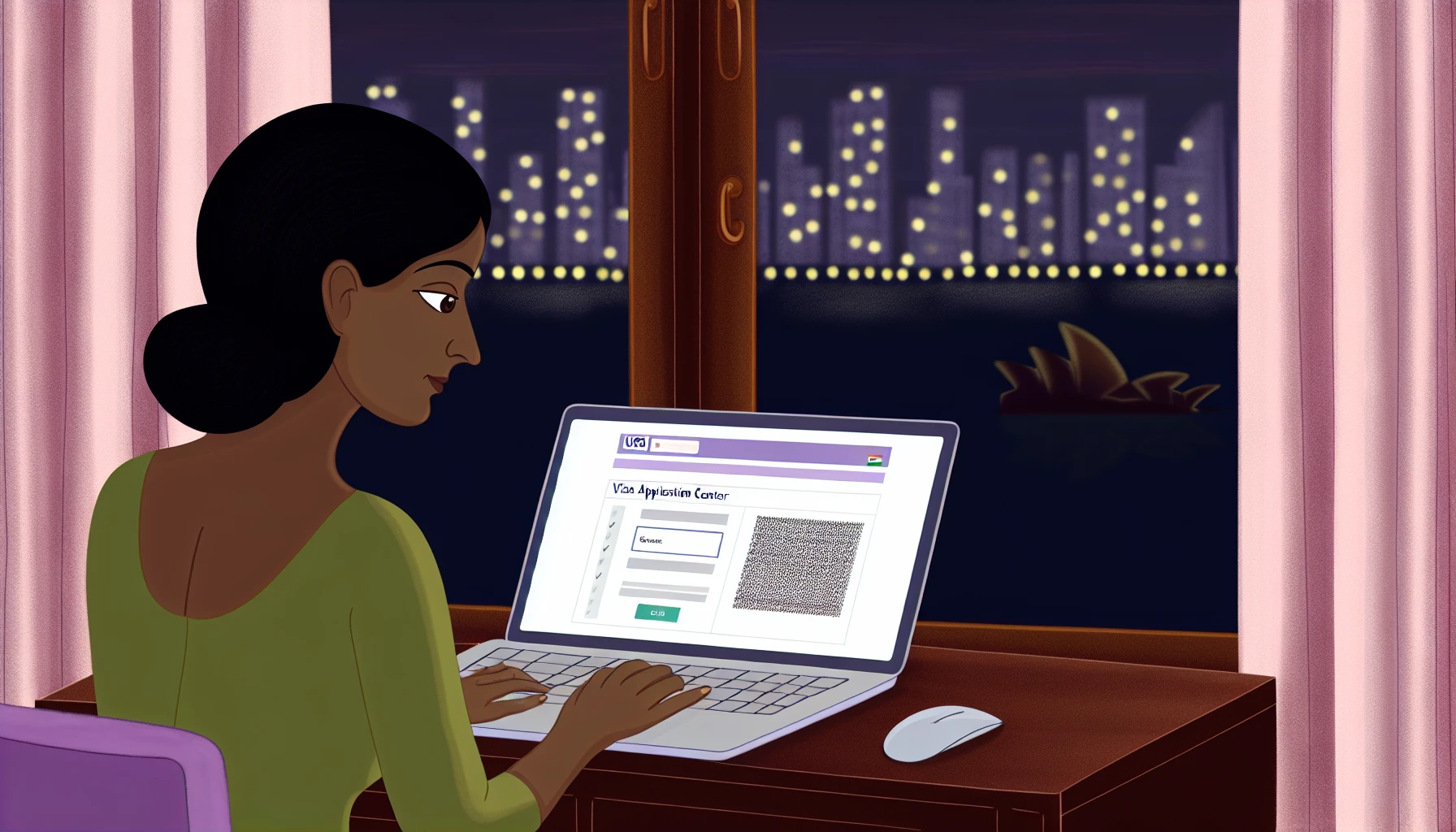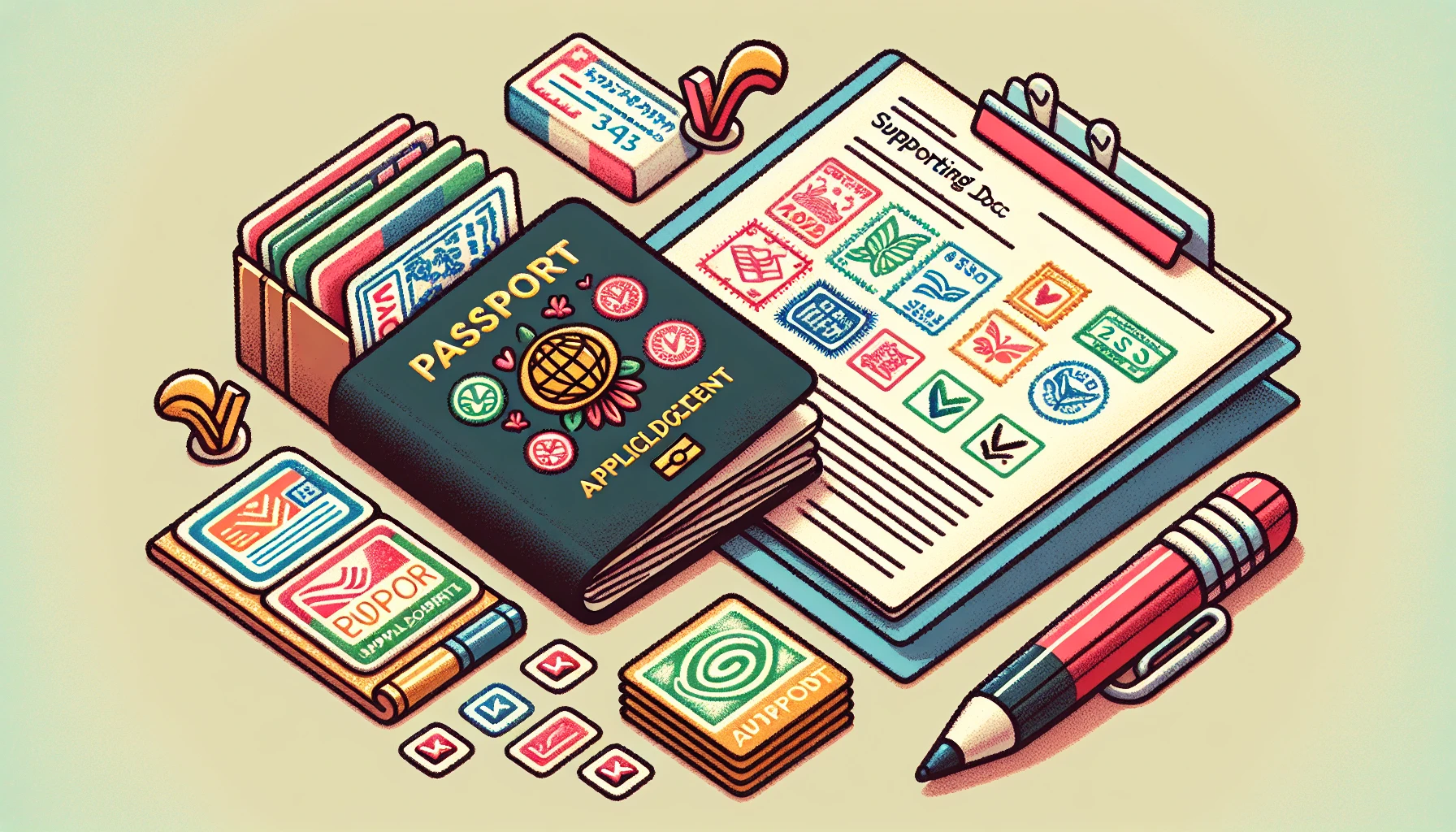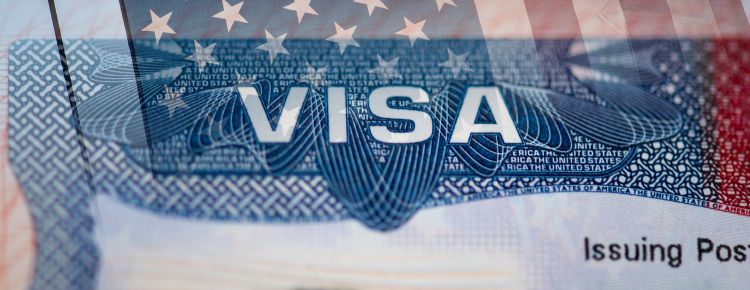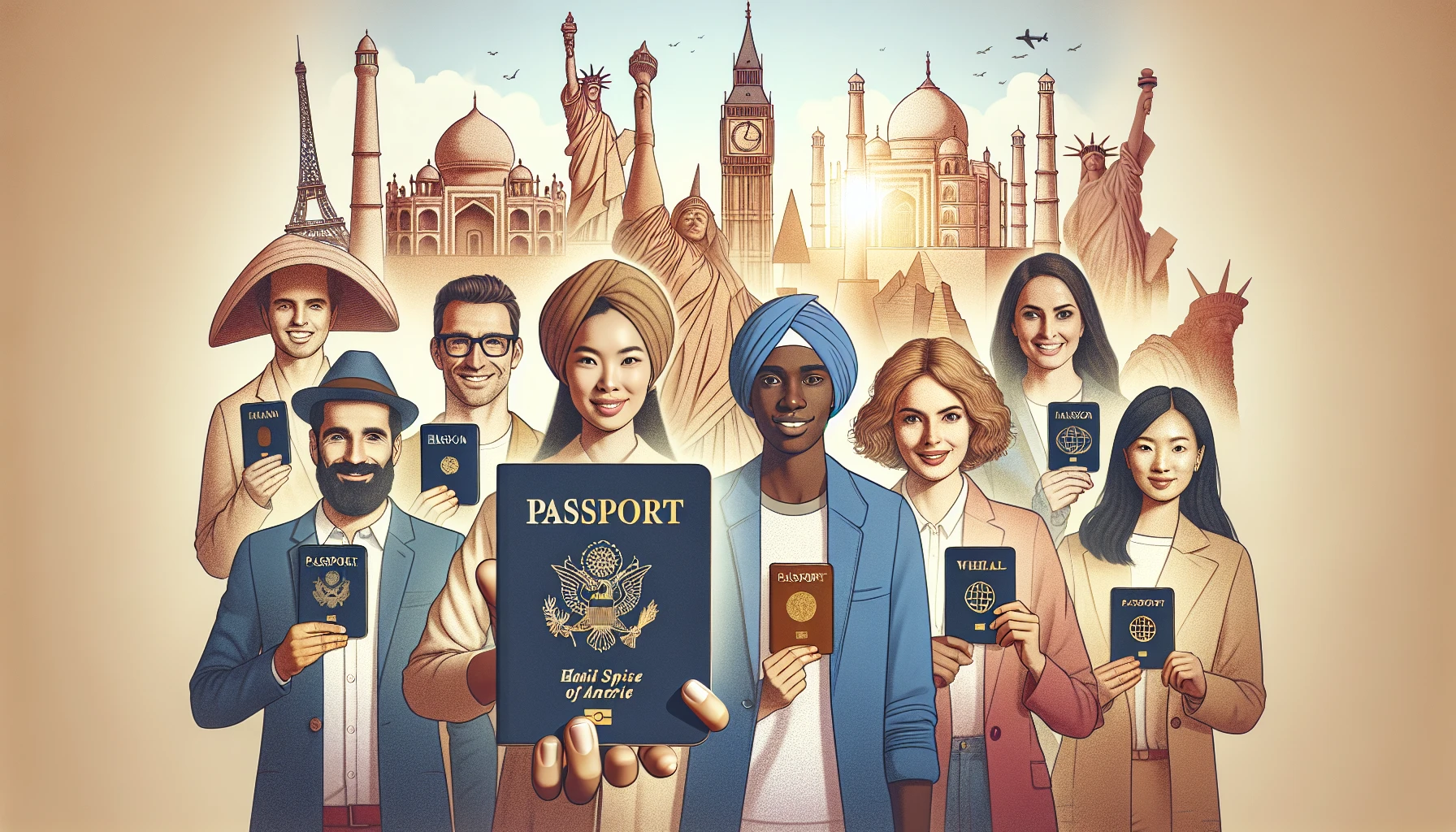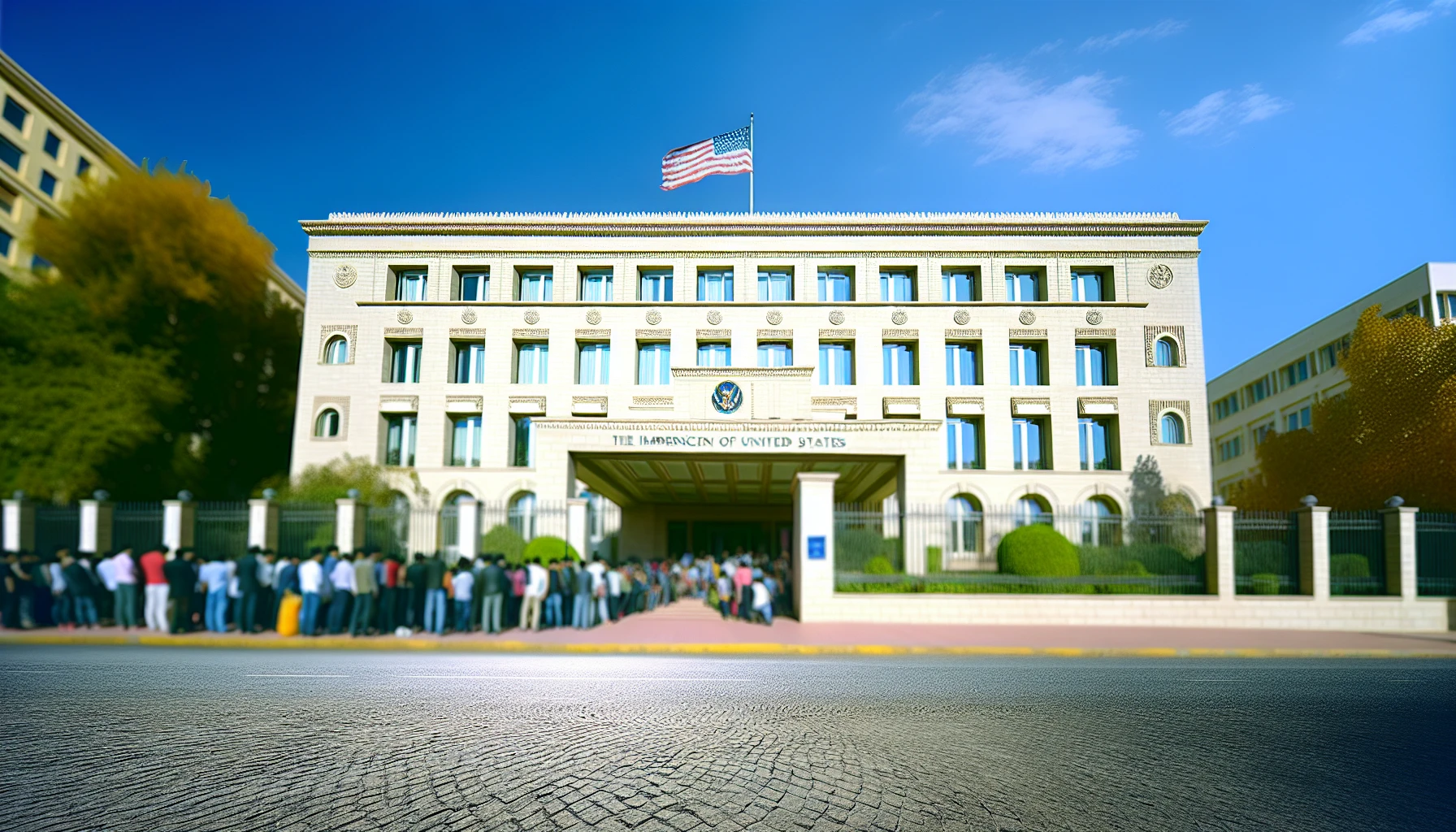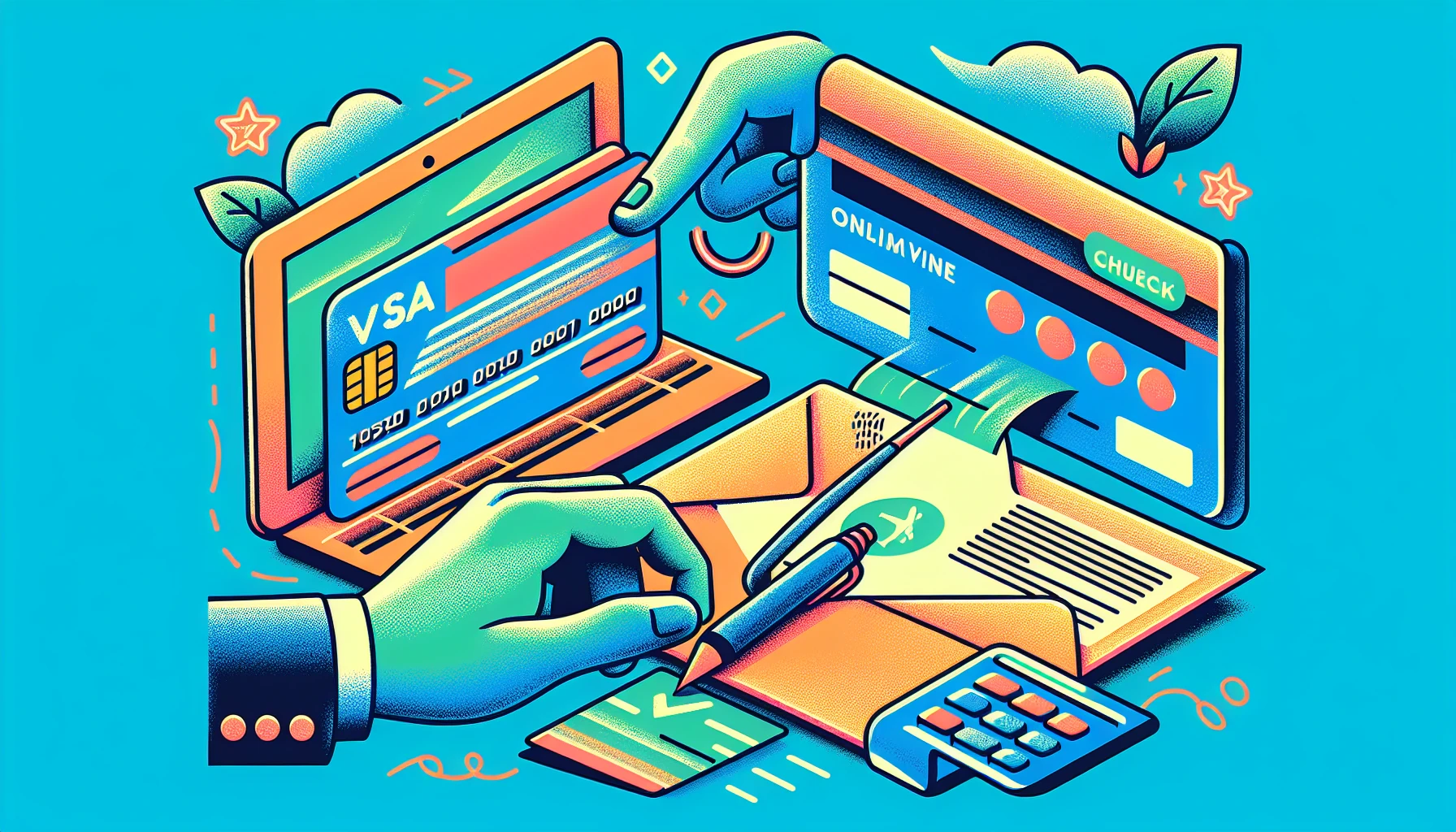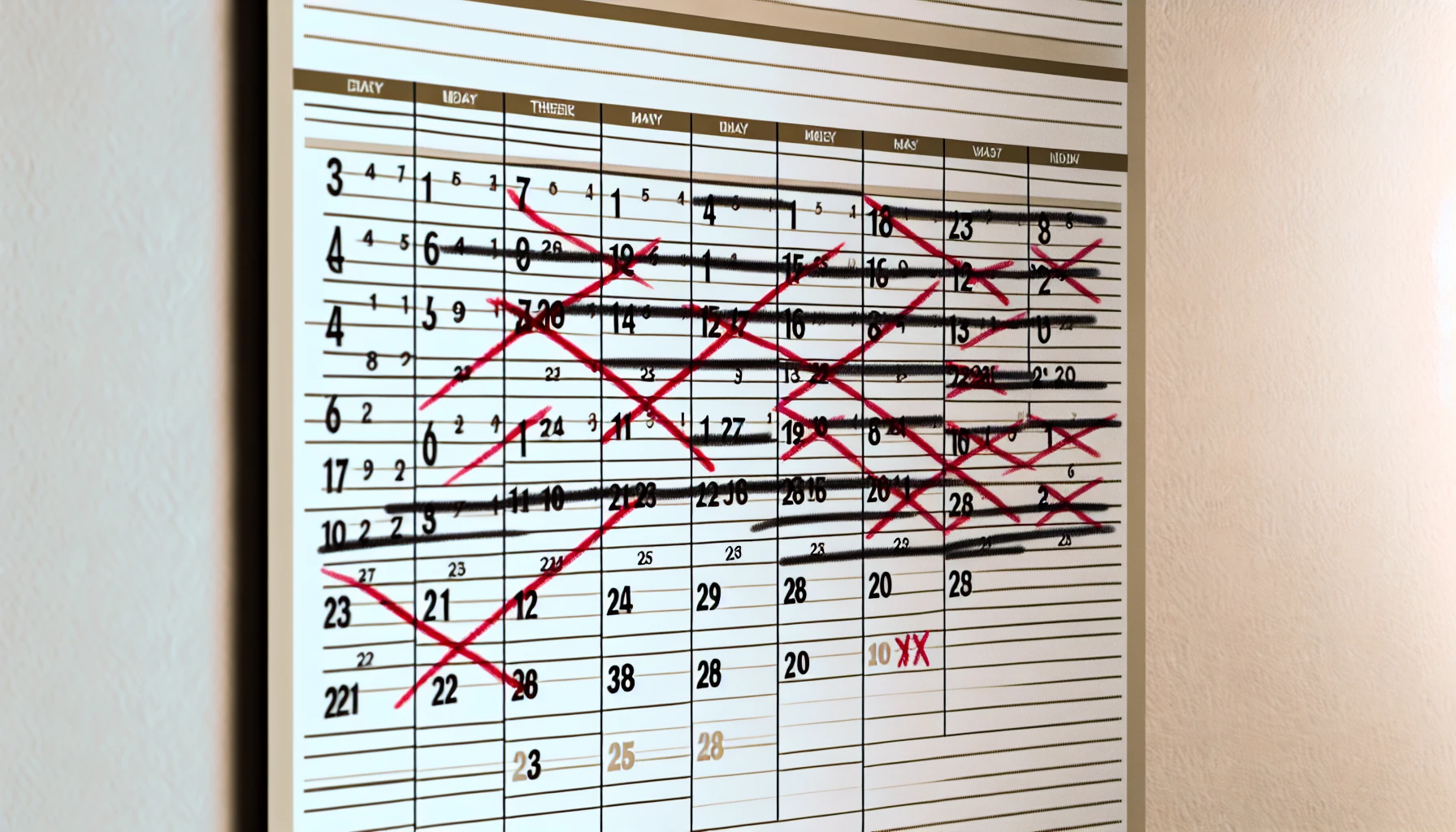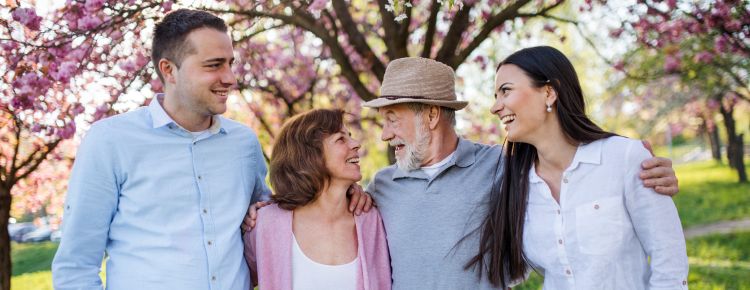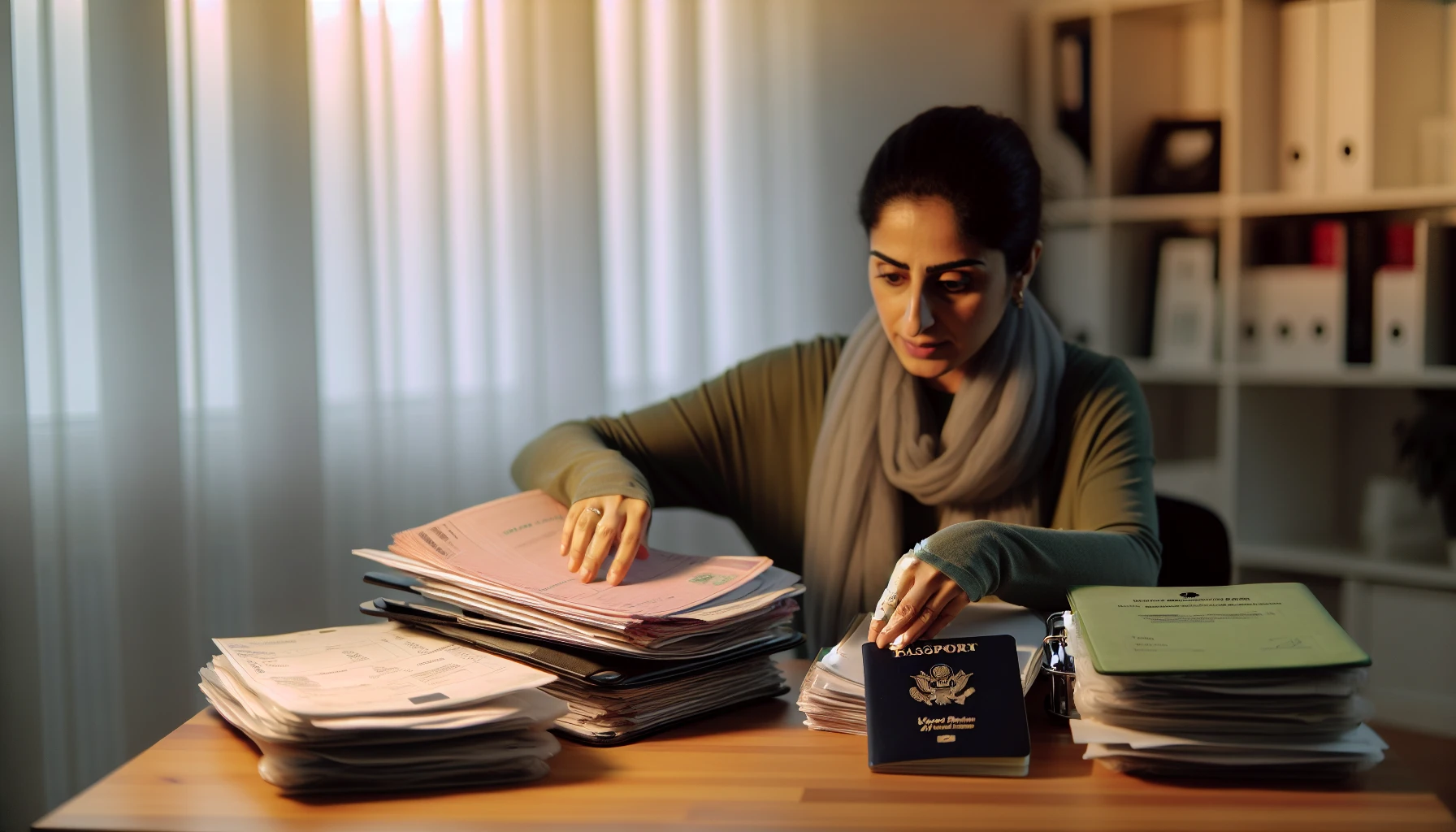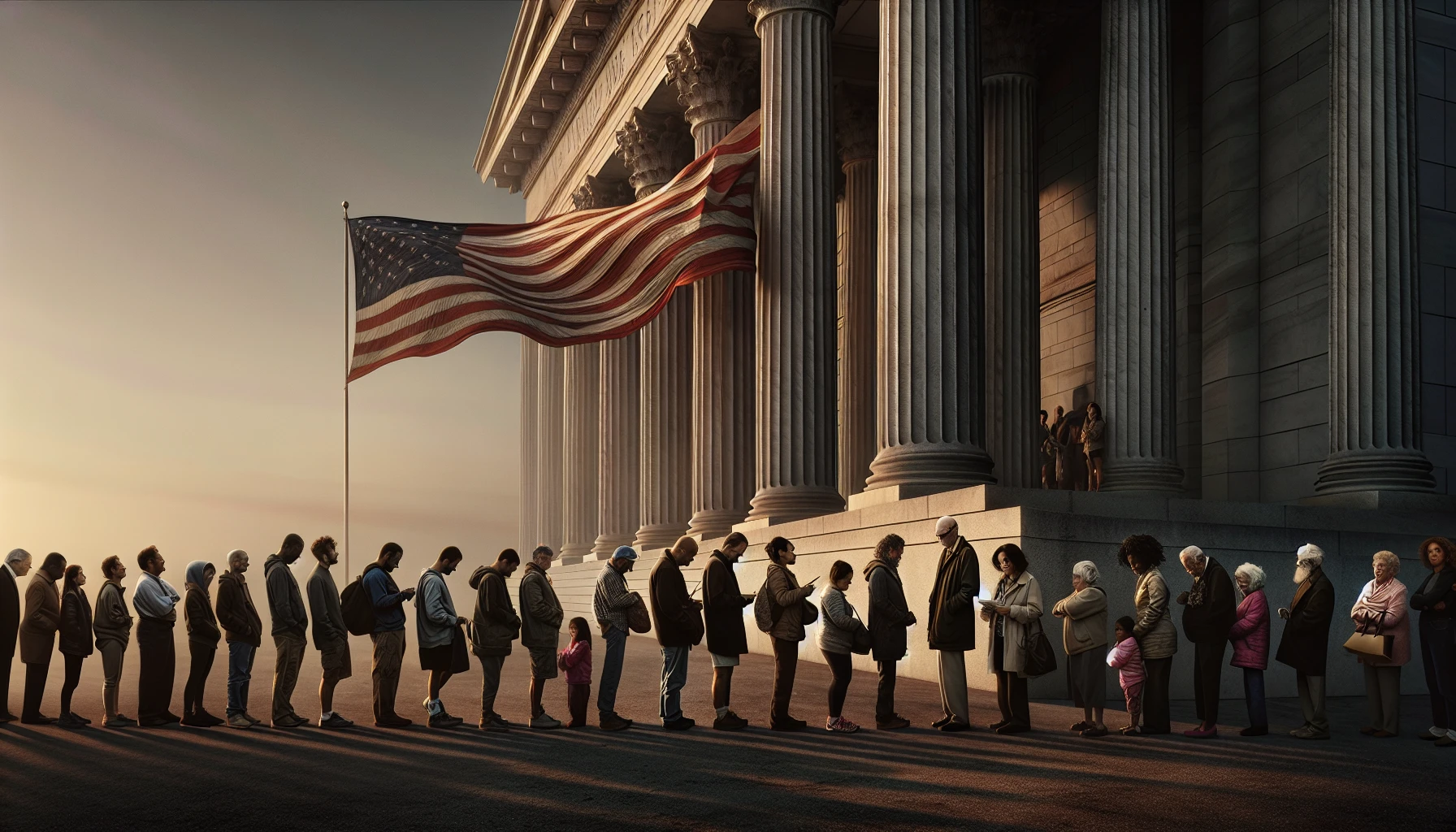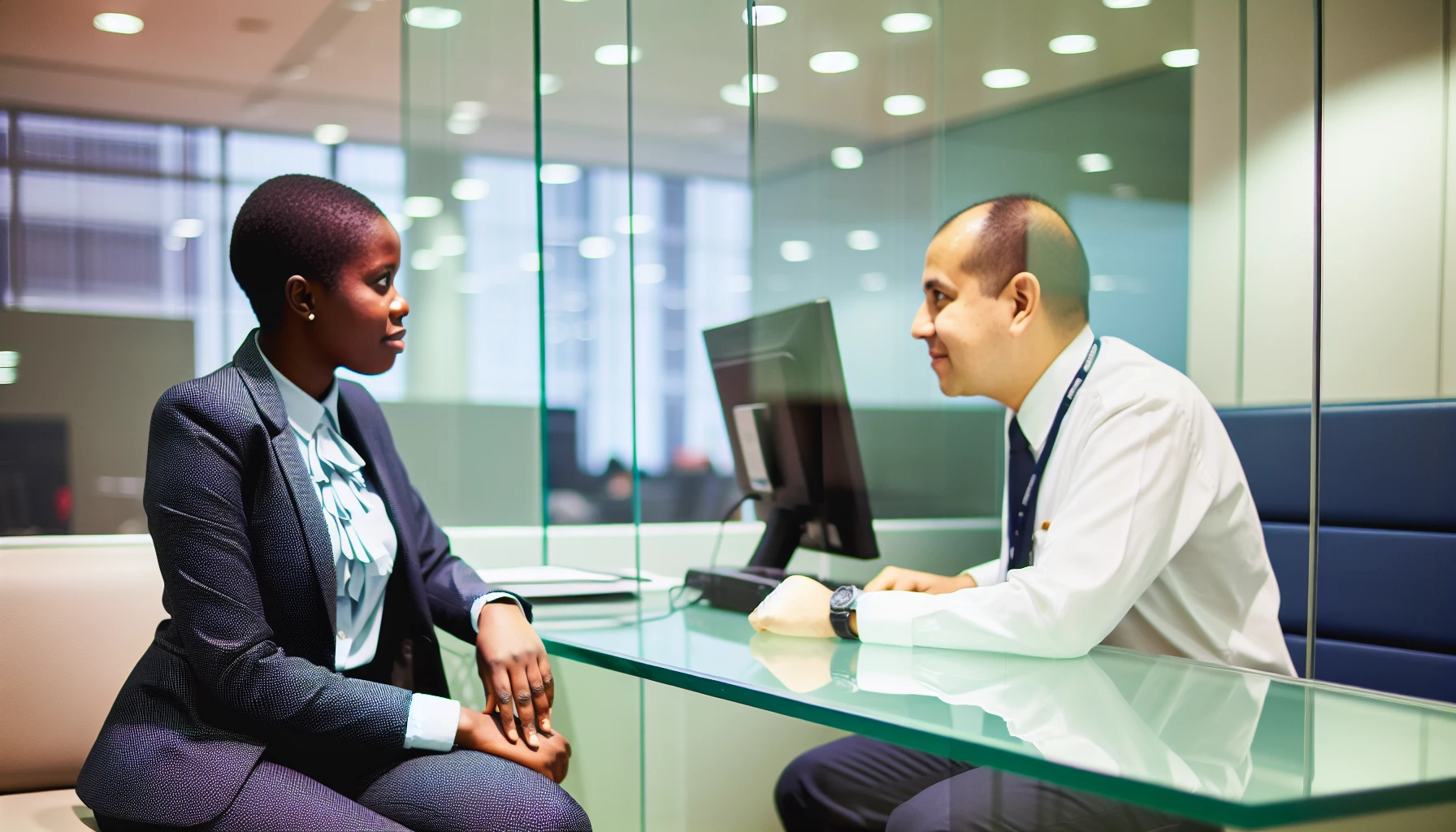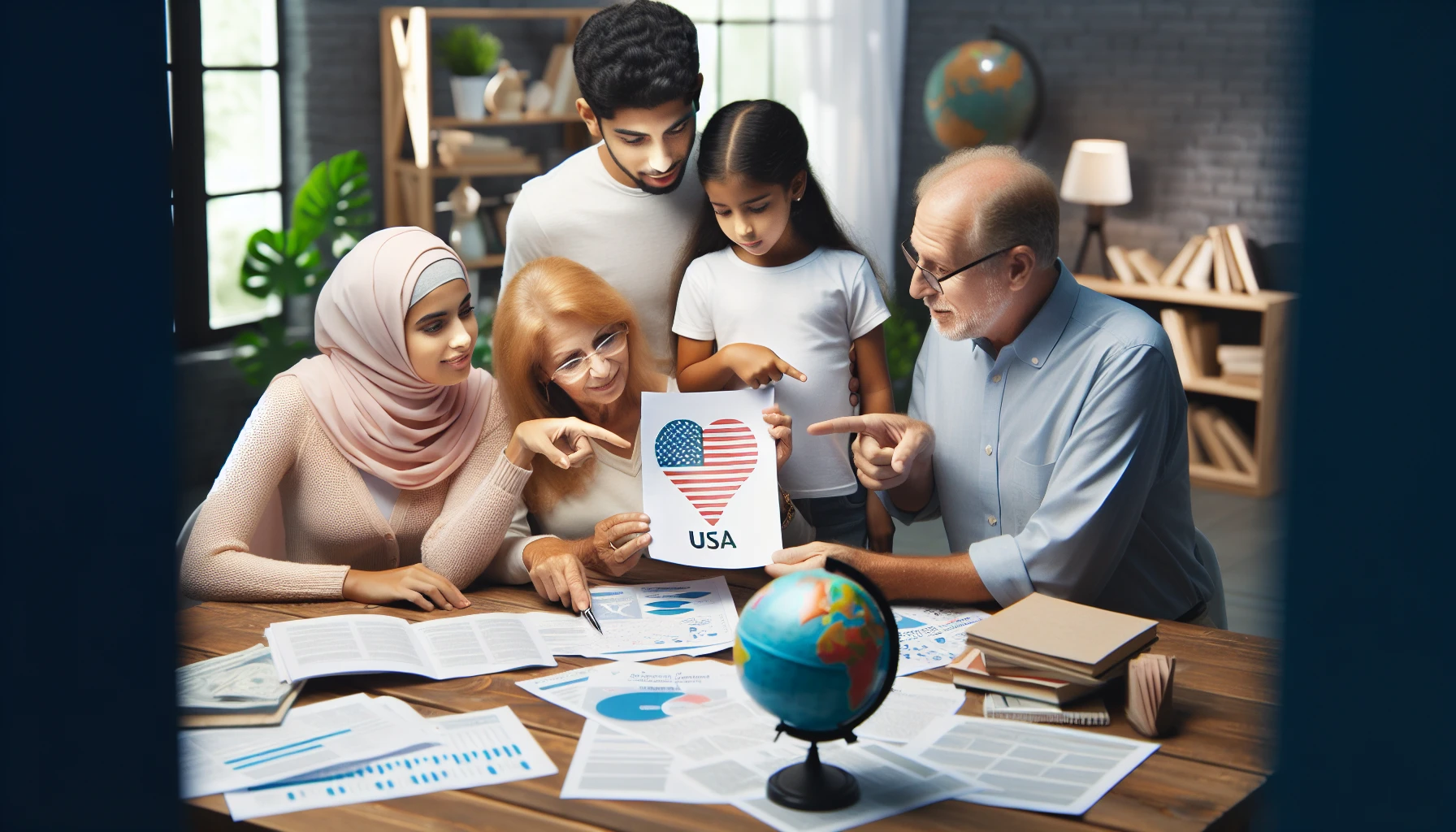Navigating the US visa interview process is a crucial step for any visa applicant seeking to secure a visa to the United States.
This guide will walk you through the preparation process, highlight essential tips, and address common interview questions to help you make a confident impression and increase your chances of a successful outcome.
Types Of US Visas Requiring An Interview
Different visa categories have unique requirements and interview procedures. Here’s a look at some common types that typically require an interview:
- Tourist (B-2): For short visits, such as tourism, visiting family, or medical treatment.
- Student (F-1): For students attending accredited US academic institutions.
- Work Visa (H-1B): For individuals sponsored by an employer to work in the US.
Immigrant visas are for those seeking permanent residence, while nonimmigrant visas are for temporary stays.
Understanding your visa type is essential to prepare effectively, as interview questions may vary slightly based on your application purpose.
Types Of US Visa Interviews
- Immigrant visa interviews: for applicants seeking to live and work in the US permanently.
- Nonimmigrant visa interviews: for applicants seeking to visit the US temporarily for business, tourism, or study.
- Student visa interviews: for applicants seeking to study in the US.
- Work visa interviews: for applicants seeking to work in the US.
Visa applicants must be prepared for different types of questions based on their visa category.
Preparing For Your US Visa Interview
1. Essential Supporting Documents
Having all necessary documents ready is vital. The required documents generally include:
- Valid passport (with at least six months validity).
- DS-160 confirmation page (completed and printed).
- Visa fee receipt.
- Recent passport-sized photos.
- Appointment confirmation letter.
- Supporting documents, such as financial records, admission letters, employment verification, and travel itinerary.
2. Scheduling The Interview
To schedule your visa appointment, visit the US Embassy or Consulate website.
Choose an interview date and time based on availability, and be sure to bring your appointment confirmation on the day of the interview.
3. Understanding The Process
Interviews typically involve security checks, so arrive early to allow time for this process. Once inside, applicants are guided through document checks before meeting with a consular officer.
The interview itself is usually brief, focusing on the purpose of your visit and ensuring your intentions align with visa regulations.
Understanding The US Visa Interview Process

The US visa interview is a crucial step in the visa application process, where an interviewing officer assesses the applicant’s eligibility for a US visa.
The interview is usually conducted at a US Embassy or Consulate, and the location depends on the type of visa and the applicant’s country of residence.
The National Visa Center (NVC) reviews the applicant’s file and schedules an interview appointment with the US government.
The interview appointment is a critical step in the visa application process, and it’s essential to be prepared with all necessary documents and information.
The US Visa Interview Experience With A Consular Officer
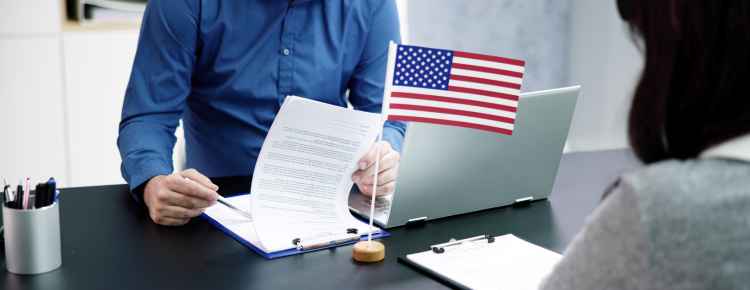
The interview is typically conducted by a single consular officer who conducts visa interviews and will ask you a wide range of questions about your application and proposed stay in the US.
The officer will assess your eligibility for a US visa and verify the information provided in your application.
The interview may include questions about your background, education, work experience, and travel plans.
Be prepared to provide detailed information and answer questions clearly and concisely.
Preparing For The US Visa Interview
- Research the specific requirements for your visa type and the embassy or consulate where you will be interviewed.
- Gather all required supporting documents, including a valid passport, birth certificate, and proof of residence abroad.
- Review the visa application process and the interview questions to ensure you are prepared.
- Practice your responses to common interview questions to build confidence.
Common US Visa Interview Questions And How To Answer Them
Preparation for common interview questions can help you respond confidently. Here are a few frequently asked questions and tips for handling them:
Why Do You Want To Visit The United States?
Clearly and concisely state your reason. For instance, “I am visiting for tourism and to explore popular landmarks,” or “I’m a student enrolled in [University] to pursue my degree in [Field].”
How Long Do You Intend To Stay In The US?
Be specific about your intended stay duration. Avoid vague answers, and back up your response with itinerary details if possible.
Do You Have Family Or Friends In The US?
Be honest; consular officers verify information. If you have relatives, mention who they are and your relationship with them.
What Do You Do For A Living?
Briefly describe your job or studies and emphasize ties to your home country, showcasing that you intend to return.
How Will You Fund Your Trip?
Discuss your financial arrangements confidently. If a family member or employer is sponsoring you, mention this and show financial documentation if requested.
Tips For A Successful US Visa Interview
Dress Professionally: Presenting yourself professionally sets a positive impression.
Arrive Early: Arrive 15–30 minutes before your appointment. This allows time to clear security and relax before the interview.
Be Honest and Concise: Answer truthfully and avoid unnecessary elaboration. Consular officers appreciate clarity.
Show Confidence: Maintain eye contact, speak clearly, and avoid appearing nervous. Consulate staff are trained to notice hesitation or inconsistencies.
Bring Supporting Documents: While they may not ask for everything, having documents like bank statements, academic transcripts, or proof of employment can support your case.
What To Bring To The US Visa Interview
- A valid passport with at least six months’ validity.
- A printed copy of your visa application (DS-160) confirmation page.
- Supporting documents, such as proof of residence abroad, job, and support.
- Any additional documents required by the embassy or consulate.
After The US Visa Interview
After the visa interview appointment, your visa will either be approved, denied, or put under administrative processing.
The consular officer will inform you:
- Whether your application has been approved, or
- Whether your application has been denied, or
- Whether further documentation is required.
If your application is approved, your passport will be returned to you with a visa.
If your application is denied, you will be informed of the reasons for the denial and any next steps.
Here’s What To Expect In Each Case:
- Approval: The consular officer will inform you, and you can expect to receive your visa within a few days.
- Denial: If your visa is denied, you’ll receive a document explaining the reason. Common reasons include missing ties to your home country or insufficient financial evidence.
- Administrative Processing: Some applications require additional review. If this happens, the consular officer will inform you of the steps and expected timeline.
Conclusion
This guide equips you with the knowledge to approach the US visa interview confidently and thoroughly prepared. By following these steps, you can help ensure a smooth interview experience, enhancing your chances of securing your US visa.
Frequently Asked Questions (FAQ)
Q: How long does a US visa interview take?
Typically, the interview itself is brief, often under five minutes. However, plan for extra time due to security checks and document verification.
Q: Can I reschedule my visa interview?
Yes, rescheduling is usually allowed, but there may be limits on how frequently you can reschedule within a certain timeframe.
Q: What should I do if my visa is denied?
You can reapply, but it’s essential to address the reason for denial before doing so. Often, reapplying with stronger supporting documents or clearer ties to your home country can improve your chances.
Q: Is an interpreter allowed during the interview?
Most US embassies provide interpreters for certain languages if necessary, but check with your local consulate in advance.
What is the purpose of the US visa interview?
The US visa interview is conducted to assess an applicant’s eligibility for a visa and confirm that, their intentions align with the visa type they are applying for.
Consular officers use the interview to evaluate the applicant’s background, travel purpose, and ties to their home country, which helps them decide whether to approve or deny the visa.
What documents should I bring to the US visa interview?
You should bring:
- A valid passport (with at least six months of validity remaining).
- The DS-160 confirmation page (completed and printed).
- Visa fee receipt.
- Appointment confirmation letter.
- Recent passport-sized photos that meet visa photo requirements.
- Supporting documents, such as bank statements, proof of employment, school admission letters, or travel itineraries, depending on your visa type.
Can I bring a translator to the US visa interview?
Most US embassies and consulates offer interpreters for common languages if needed. However, it’s best to check with the specific embassy or consulate where your interview is scheduled to confirm availability.
In cases where no interpreter is available, the consulate may make accommodations.
What should I do if I don’t understand a question during the interview?
If you don’t understand a question, politely ask the consular officer to repeat or clarify it. It’s essential to be clear on what’s being asked to provide accurate responses.
You can say, “Could you please clarify that question?” or “I’m sorry, could you repeat that question?”
Additional Resources And Assistance
- Check the US Department of State’s website for information on visa requirements and application procedures.
- Contact the National Visa Center (NVC) for assistance with the visa application process.
- Consider seeking the help of an immigration attorney or visa consultant.
